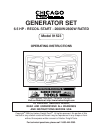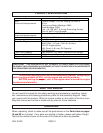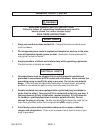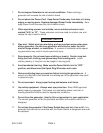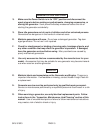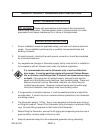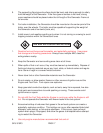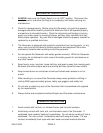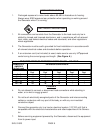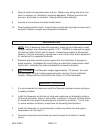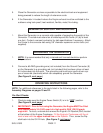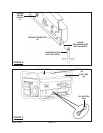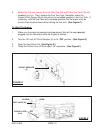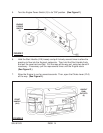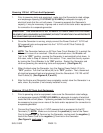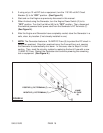
SKU 91523 PAGE 4
7. Do not expose Generator to rain or wet conditions. Water entering a
generator will increase the risk of electric shock.
8. Do not abuse the Power Cord. Keep Power Cords away from heat, oil, sharp
edges, or moving parts. Replace damaged Power Cords immediately. Dam-
aged Power Cords increase the risk of electric shock.
9. When operating a power tool outside, use an outdoor extension cord
marked “W-A” or “W”. These extension cords are rated for outdoor use, and
reduce the risk of electric shock.
PERSONAL SAFETY
10. Stay alert. Watch what you are doing, and use common sense when oper-
ating a generator. Do not use a generator while tired or under the influ-
ence of drugs, alcohol, or medication. A moment of inattention while operat-
ing generators may result in serious personal injury.
11. Dress properly. Do not wear loose clothing or jewelry. Contain long hair.
Keep your hair, clothing, and gloves away from moving parts. Loose
clothes, jewelry, or long hair can be caught in moving parts.
12. Avoid accidental starting. Make sure the Power Switch is in its “OFF”
position, and disconnect the Spark Plug Wire when not in use.
13. Remove adjusting keys or wrenches before turning the generator on. A
wrench or a key that is left attached to a rotating part of the generator may result
in personal injury.
14. Do not overreach. Keep proper footing and balance at all times.
15. Use safety equipment. Always wear eye protection. Wear ANSI approved
safety impact eye goggles. Dust mask, non-skid safety shoes, hard hat, or
hearing protection must be used for appropriate conditions.
16. Do not force the generator. Use the Correct generator for your application.
The correct generator will do the job better and safer at the rate for which it is
designed.
17. Do not use the generator if the Power Switch does not turn it on or off. Any
generator that cannot be controlled with the Power Switch is dangerous and must
be replaced.



